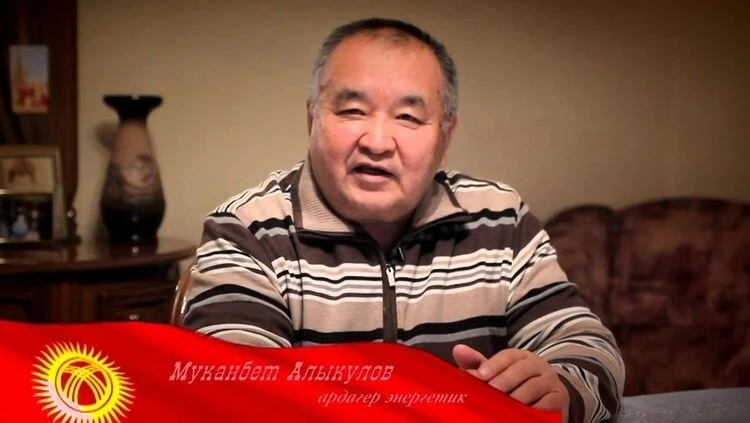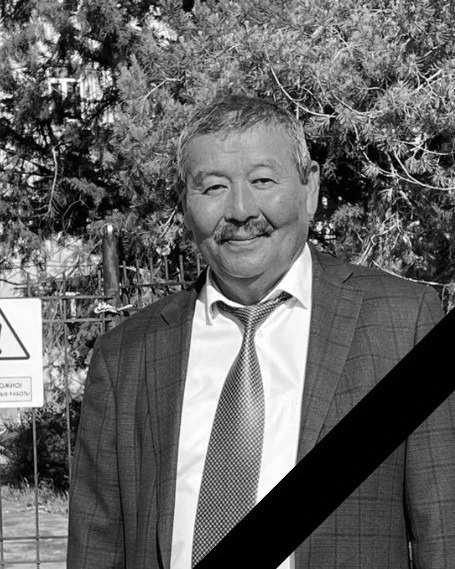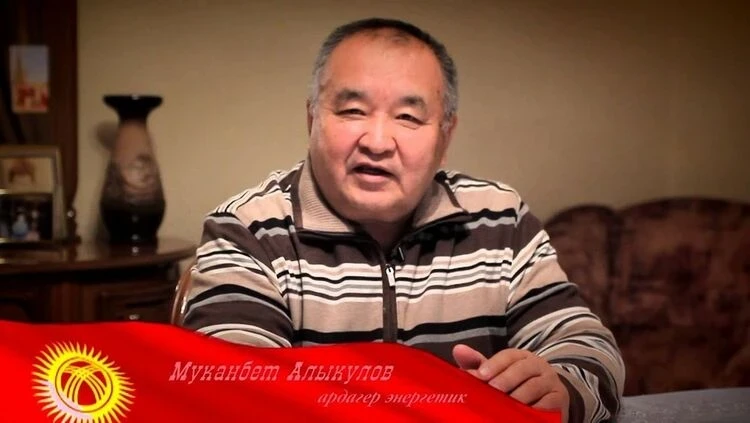In the book "Drug Situation: Analysis, Diagnosis, Prognosis," Lieutenant General of...
Jalil Abdykalikov, a distinguished physician and director of the Panfilov District Center for...
On November 1, the Kyrgyz police will celebrate its 101st birthday. In connection with this date,...
This year, the Kyrgyz police are celebrating a significant date — the 101st anniversary of their...

Photo from the internet Mukambek Alykulov, a renowned public and political figure, passed away at...
Employees of the kindergarten named after Ö.Ishenbekov in the village of Ak-Suu, located in the...

According to the press service of the Ministry of Health, Jalil Abdykalikov, a distinguished...
Ulukbek Artykov has become the new director of the school located in the village of Cholok-Kaiyn,...
In the village of Maman, located in the Ak-Suy district, the insulation of the facade of the J....
On November 4, in the Panfilov district of the Chui region, the funeral of Jalil Abdykalikov, the...
In the village of Novovoznesenovka, located in the Ak-Su district of the Issyk-Kul region, funding...
Spouses Jamalidin Omorov and Seyilbubu Alybaeva from the Kyzyl-Oktabrsky ayil district of the Kemin...
At the age of 62, after a prolonged illness, Mukhtarbek Satarovich Kyrbashov, who headed the...
Egemberdi Batyrbekov, a 42-year-old police officer from Talas, is following in the footsteps of his...
A 35-year-old police captain and senior inspector of the traffic safety group of the Manas District...
Shoola Kenenbaeva, 15 years old, lives in the village of Tosh-Bulak (Төш-Булак), located in the...
The Turmush publication continues to share materials as part of the "Жеңеке" project,...

Photo from the internet Mukambek Alykulov, a well-known state and public figure, passed away at...
Azamat Kalibaev, who is 40 years old, is an experienced police officer. He currently resides in...
In the Kochkor district, a mini-football tournament was held dedicated to the holiday of...
In the Issyk-Kul region, an active fight against predators threatening livestock has begun, reports...
Turmush — In the Jumgal district, a significant event took place in honor of Isagalay Aydraliev, a...
The press service of the Internal Affairs Department of the Osh region reported that 16-year-old...
In the Kemin district of the Chui region, in the village of Kara-Bulak, a new kindergarten is...
In the Issyk-Kul region, in the Ak-Suu district, an event was held dedicated to the anniversary of...
The secret cave is located in the village of Kök-Moynok, not far from the city of Balıkçı in the...
A road traffic accident occurred in the village of Dostuk, located in the Alamudun district of the...
Aynura Asanbekovna Balbakova now holds the position of head of the Issyk-Ata District Department of...
Starting from the morning of October 29, 2025, restrictions on the movement of vehicles have been...
In the Issyk-Kul region, on S. Jumadylov Street in the village of Aral, a fire occurred, resulting...
In the Tyup district, events dedicated to strengthening women's health have begun as part of...
In the Issyk-Kul region, in the Ak-Suu district, autumn irrigation is being carried out, affecting...

Adamkaly Baybatyrov (1895—1953) — a brilliant temir komuz player, puppeteer, and harmonist, a...
Mukhtarbek Kyrbashov, who served as the director of the Toktosun Tynibekov Jalal-Abad Regional...
Political repression during the Soviet period affected millions of people, yet the exact figures...
In the Ak-Suu district, located in the Issyk-Kul region, the price of valerian root has reached 70...
On November 5, a celebration took place in the Kara-Suu district, dedicated to the centenary of the...
In the territory of the village of Shor-Bulak, located in the Ton district of the Issyk-Kul region,...
In Karakol, located in the Issyk-Kul region, there is a building that was erected over a hundred...
Ermart Sasikov, a police major and senior district inspector of the territorial police department...
Elmira Ashyrbaeva, the head of the urban planning and architecture department in the Jumgal...
In the Jeti-Oguz district of the Issyk-Kul region, in the village of Barskoon, a monument was...